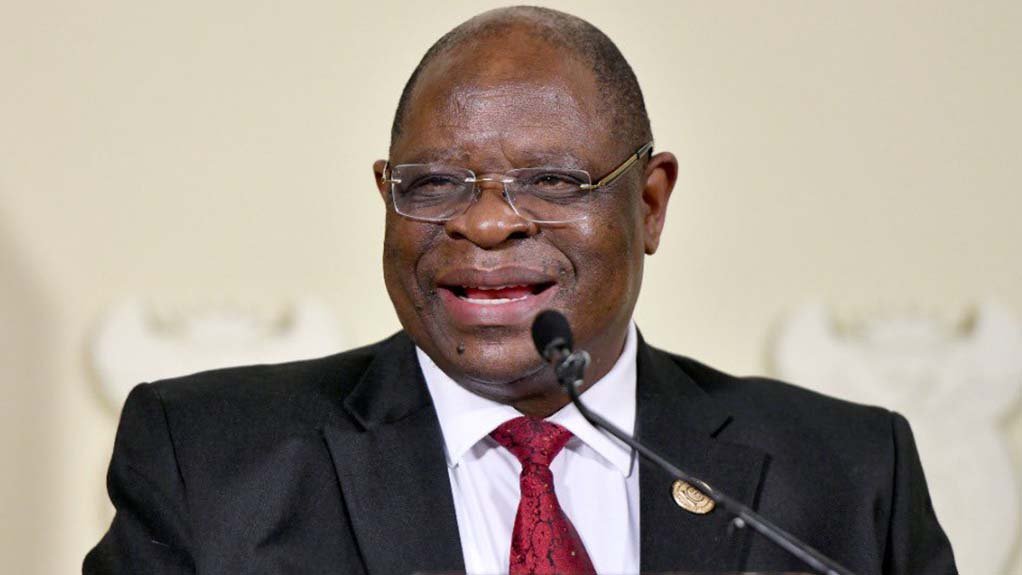Chief Justice Raymond Zondo argued on Thursday that changing rules and regulations is not an essential requirement for State capture to occur, stating that the capture of the State has placed South Africa’s democracy at risk.
June 22 marks a year since Zondo handed over the commission’s last of six volumes of the Judicial Commission of Inquiry into State Capture Report to President Cyril Ramaphosa.
Zondo was speaking at the Human Sciences Research Council’s colloquium on the post-Zondo commission period and the future of democracy on Thursday, where he said that State capture in South Africa, whether by the Guptas, Bosasa or Bain & Company did not entail that any rules or regulations be changed.
He explained that the country’s version of State capture entailed having great influence or control over government officials, which included the head of State.
“I do not think the changing of rules and regulations is an essential requirement of State capture. I cannot see why, if instead of asking that the rules be changed, one uses illicit payments with government officials in order to ensure that existing rules are bridged, why that should not be State capture? It seems to me that there are different forms of State capture but one must recognise the essential elements,” said Zondo.
He explained that the capturing of the State does not require that all three arms of State be captured, either.
“If a group of individuals has a strong influence on a head of State, such as the Guptas [did], and that influence is used not for the head of State to make decisions that are lawful and serve the interests of the people but that serve the interests of only some of the individuals or group, or entities, that is still State capture, notwithstanding the fact that not all three arms of the State are involved,” he added.
Zondo believes that there is no doubt when one goes through the commission’s evidence that the Guptas and their allies had planned the State capture project in good time and worked on it for quite some time.
“You will remember that in 2009 we had general elections and after the election President Jacob Zuma became the President of the country but the Guptas had been close to the [President] before for quite a few years, but where they started was with Transnet. Now that was 2009, so for about two years President Zuma did not want the position to be filled, that is the position of the CEO of Transnet, because he wanted Siyabonga Gama, and this was the time Gama had gone through a disciplinary process,” Zondo highlighted.
He explained that evidence from the commission might not be strong enough to determine why Zuma insisted on Gama being the CEO of Transnet and whether it was at the behest of the Guptas, but he believes what came after suggested very strongly that it was at the request of the Guptas.
Retired Judge Kathleen Satchwell found that the State freight rail entity initially tried to cut corners to get rid of Gama, but eventually found the legitimate contractual grounds to achieve the goal.
Zondo said nevertheless Zuma wanted Gama to be the CEO of Transnet. Over two years the vacancy was not filled.
EMAIL THIS ARTICLE SAVE THIS ARTICLE ARTICLE ENQUIRY
To subscribe email subscriptions@creamermedia.co.za or click here
To advertise email advertising@creamermedia.co.za or click here











